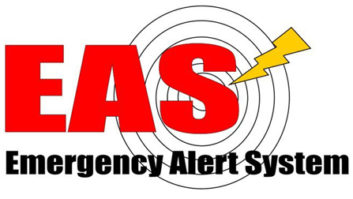With the June 30 deadline approaching for broadcasters to have Common Alerting Protocol-compliant EAS gear installed and in working order at their stations, the industry and government turn their attention to the practical mechanics of that migration.
A subgroup of a federal advisory committee making best practices recommendations to the FCC about migration to CAP-EAS met yesterday and has focused on two core areas they think need commission attention. Edward Czarnecki of Monroe Electronics co-chairs “working group 9” of the Communications, Security, Reliability and Interoperability Council, along with Chris Homer of DirecTV.
The FCC prohibited the use of “text-to-speech” (TTS) for assembling the legacy EAS audio messages derived from CAP alerts when no CAP audio file is provided in its Fifth Report & Order. In an AWARE blog post, Gary Timm wrote that the commission cited concerns about whether TTS is “sufficiently accurate” for EAS use “and the agency feels that different TTS software could produce differing audio messages from the same EAS message.”
The working group has recommended that the FCC reverse that ban. Czarnecki says if the ban is not lifted, “all that will reach the air is EAS tones,” making the alert unusable to stations. Those with visual impairments or who can’t read the crawl on the television rely on radio or the aural part of the TV message, he emphasized.
The bottom line: “The prohibition poses complications whether or not a state-based or federal-based message origination system is generating an audio file,” Czarnecki said.
The next step is to see whether the FCC can reexamine the prohibition, by possibly using a Notice of Inquiry or beginning another rulemaking on the topic, he told Radio World.
FEMA and a group of EAS gear manufacturers recently asked the commission to rethink the text-to speech ban.
The CSRC working group also discussed potential issues of combining IPAWS Conformity Assessment with FCC Part 11 Equipment Certification. Among other issues, the FEMA CAP conformity test guidance — needed for test facilities to design and review their test support programs — is not yet public. Nonetheless, completion of Part 11 product testing is feasible by June 30, according to the industry group, which does not feel the June 30 CAP compliance deadline needs to be extended.
The group recommended that all testing under the streamlined certification process be conducted via FCC-approved third-party facilities, and that that self-certification should not be allowed.
Finally, the group urges FEMA to issue its CAP conformity test guidance as quickly as possible, so that test facilities can design their test support programs.
The working group plans to have a follow-up report in June.








